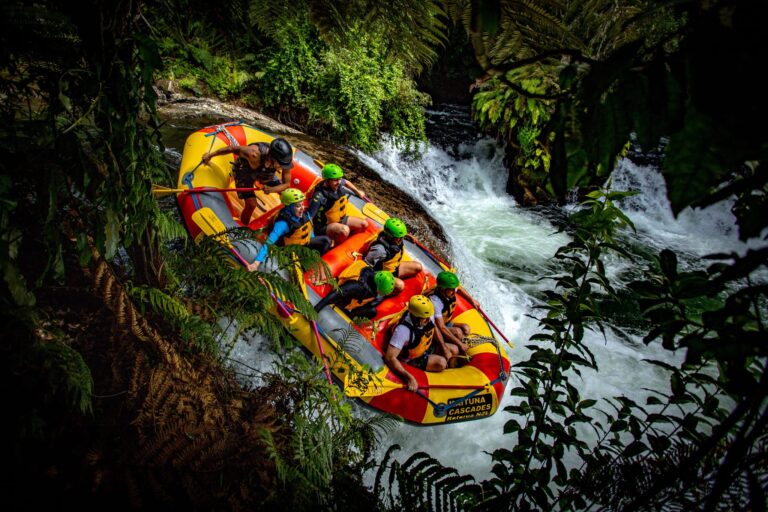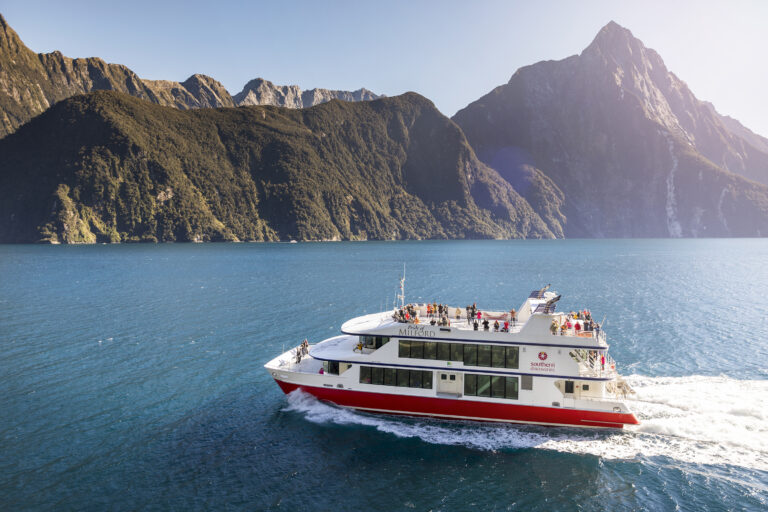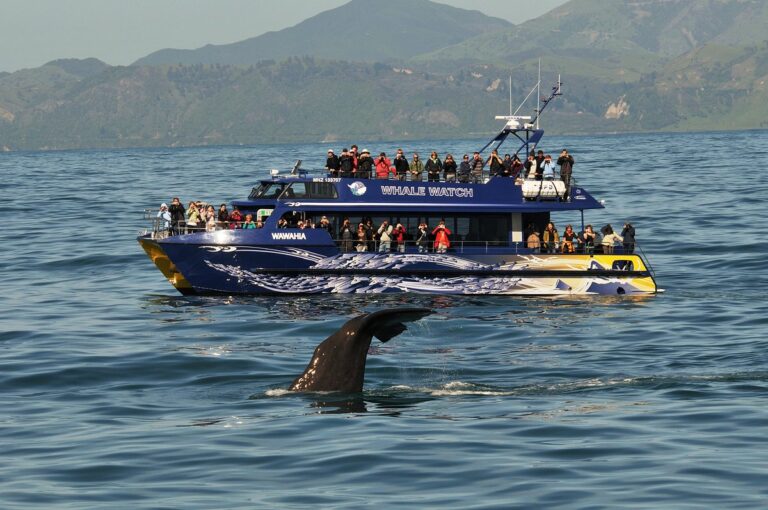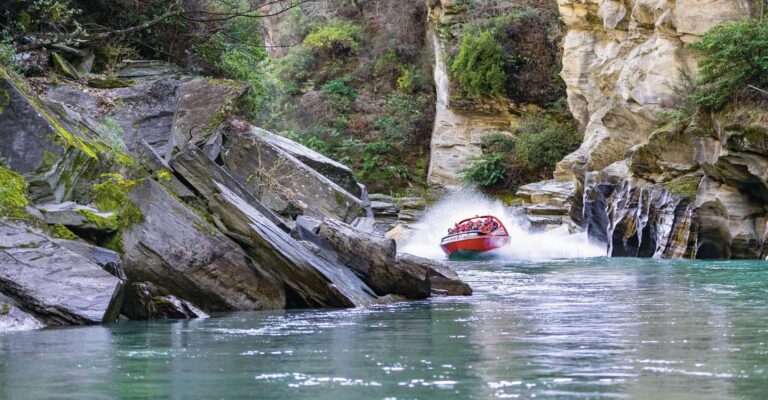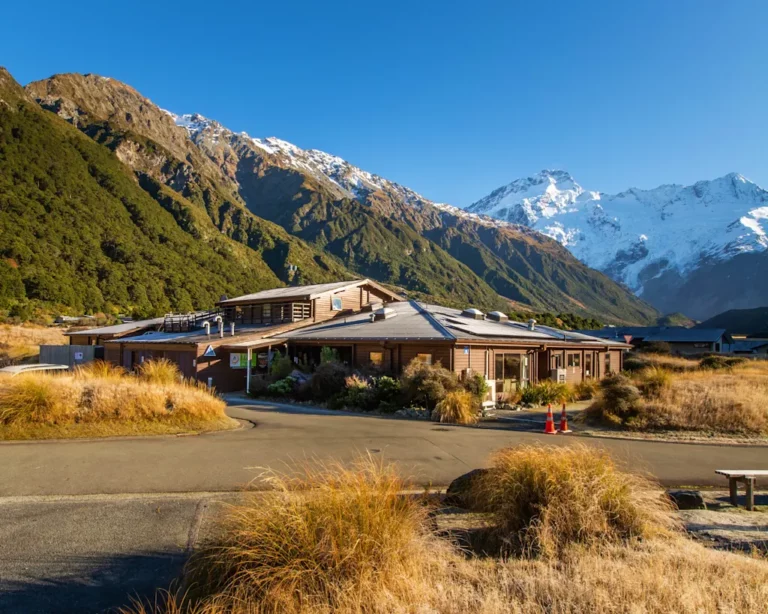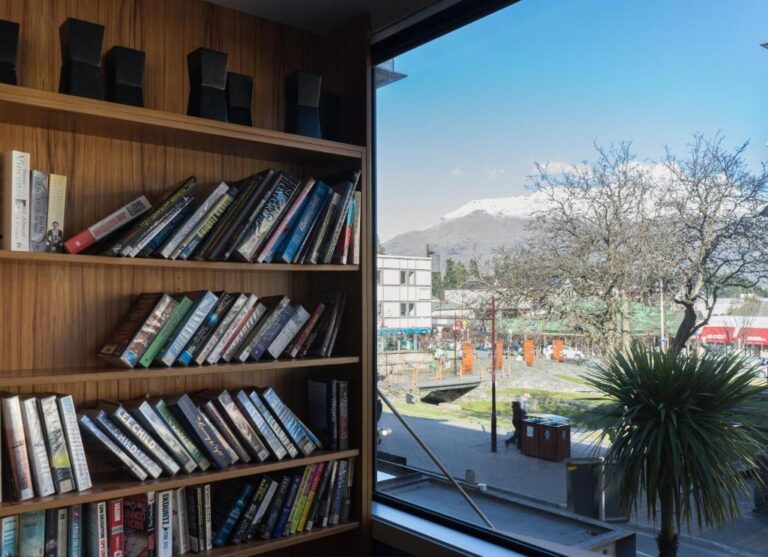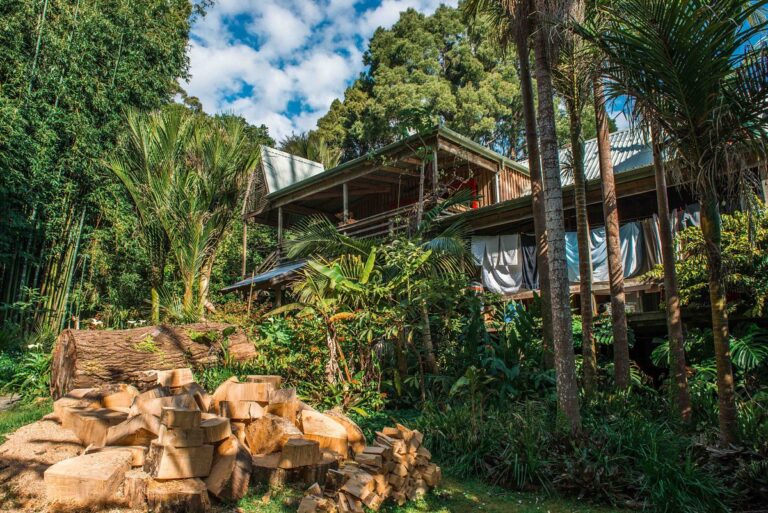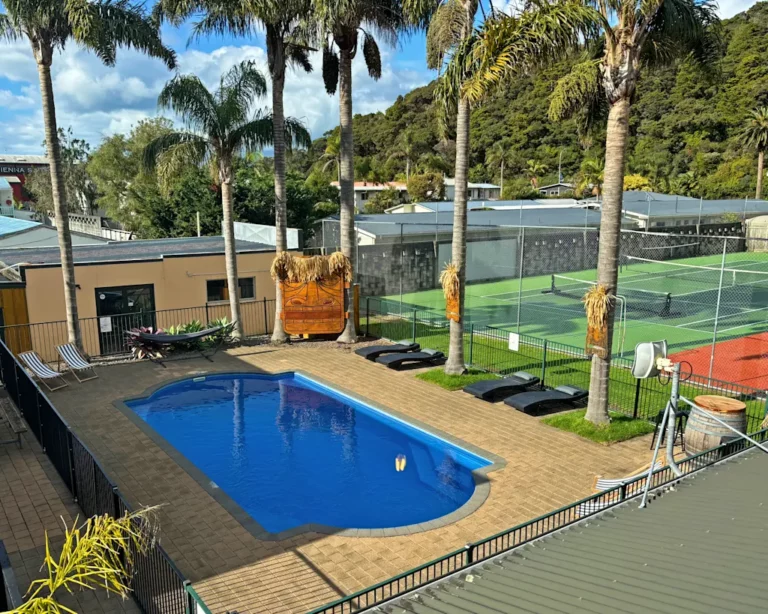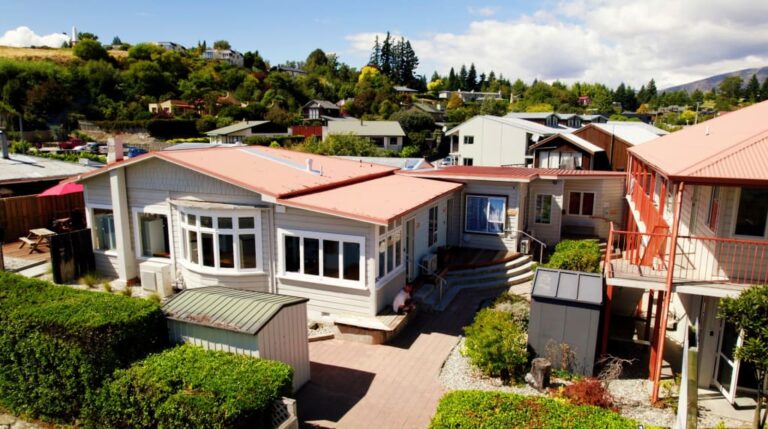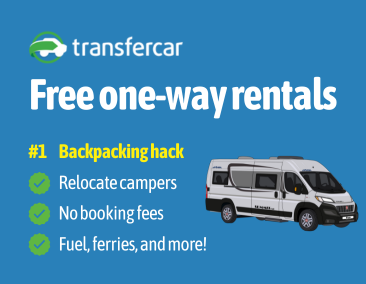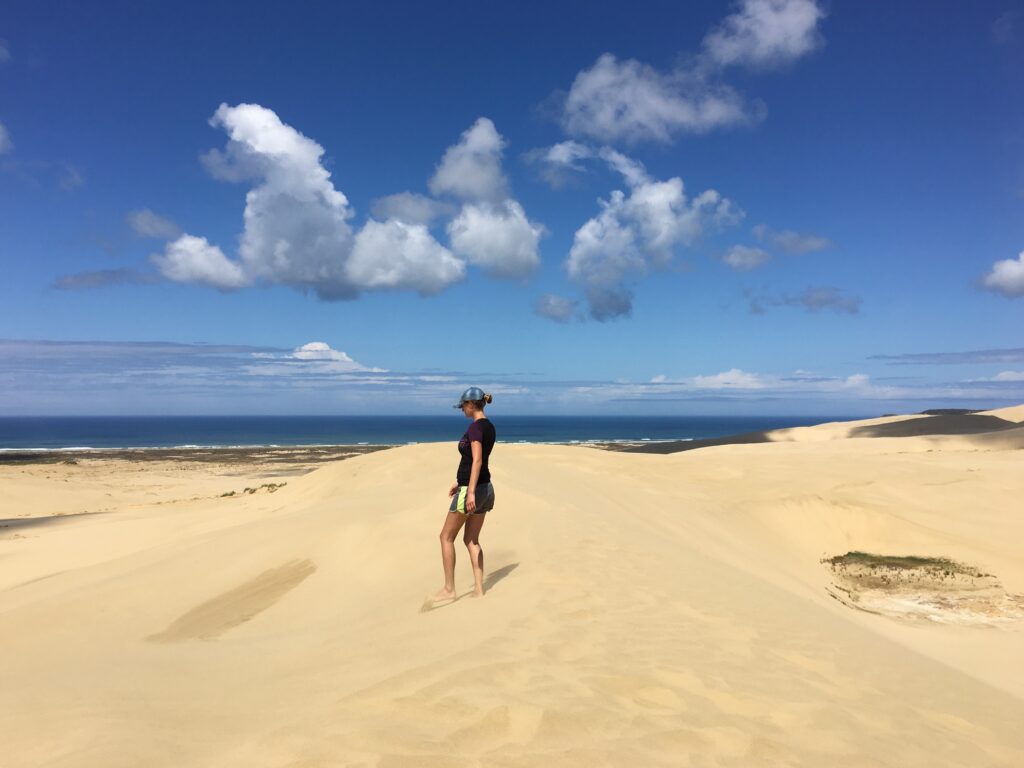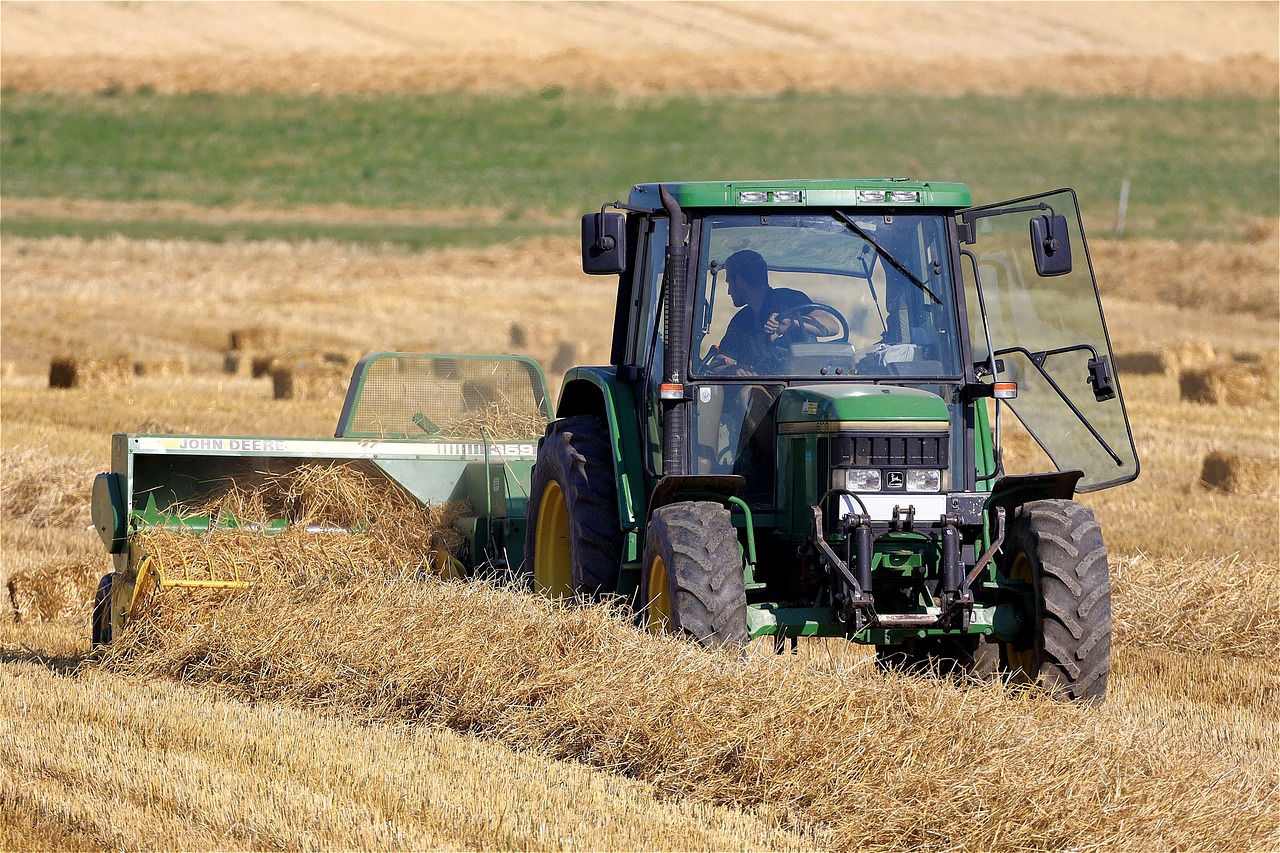
Are you ready to start an epic adventure—working and travelling through one of the most beautiful countries on the planet?! Whether you’re picking fruit in the sunshine, pouring pints in a ski town, or working for your bed in a beachside hostel, there are plenty of backpacker jobs in New Zealand to choose from.
If you’re planning to backpack through Aotearoa and want to stretch your budget, work and travel is a game-changer. Not only does it help fund your adventures, but it’s also a great way to meet locals, connect with other backpackers, and experience the country in a deeper, more authentic way.
We’ve put this guide together to cover everything you need to know about backpacker jobs in New Zealand—from visa rules and job types to seasonal work hotspots, job boards, and even how to claim your tax refund before you leave.
Working legally in New Zealand as a backpacker (WHV)
First things first: to work and travel New Zealand as a backpacker, you’ll need a Working Holiday Visa. These are available to travellers aged 18–30 (or 35 for some countries) and typically allow you to stay and work for up to 12 months. The availability of working holiday visas varies by nationality. Some countries have a limited WHV allowance—so always apply as early as possible.
You can also apply for an extension. With the Working Holiday Extension Work Visa you can stay in New Zealand for an additional 3 months with the same conditions as your original WHV. In order to apply for the extension you must already have completed at least 3 months of seasonal horticulture or viticulture work in New Zealand.
👉🏼 For more info on the Working Holiday Visa, including how to apply, check out our Beginner’s guide to backpacking New Zealand.
Once you’ve got your visa, you’ll need to:
- Get an IRD number (Inland Revenue Department)—this is your tax ID and is required by employers.
- Open a New Zealand bank account—most employers pay via direct deposit.
- Set up a local SIM card—you’ll need a NZ number for job applications and communication.
📄 Pro tip: Apply for your IRD number online as soon as you arrive—you’ll need it to start earning money.
The big question: What should you apply for first—IRD number or bank account?
Start with an IRD number. You heard it here! You will need it to open a bank account—so getting your IRD number is step one (this information comes directly from IRD themselves).
Getting your IRD number in New Zealand
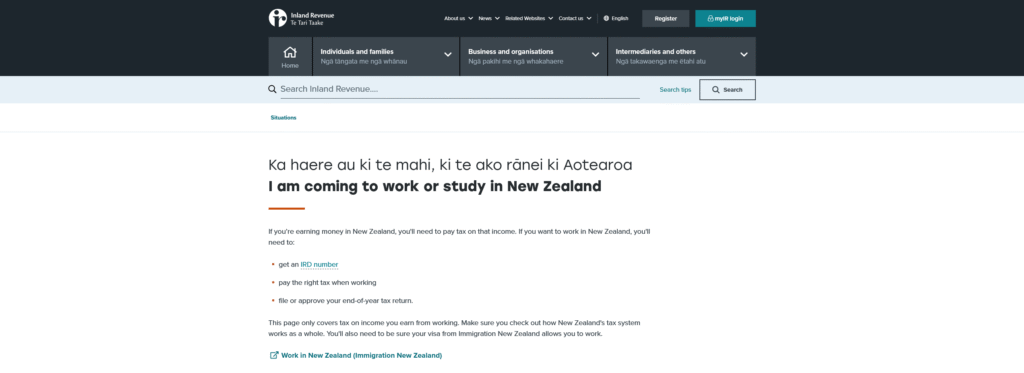
If you plan to work in New Zealand—even for a short stint—you must have an IRD number (Inland Revenue Department number). This is your personal tax ID, and without it, you’ll be taxed at the non-declaration rate of 45%, which will eat a huge chunk of your paycheck. Not what you want if you’re backpacking!
Why you need this precious number
Your IRD number links you to the tax system and ensures you’re taxed at the correct rate. Employers will ask for it before processing your first payment. You keep the same IRD number for life, so if you’ve worked in NZ before, you can reuse it.
What you need before applying
To apply for an IRD number as a backpacker on a Working Holiday Visa, gather these essentials:
- Photo ID (passport – current of course!)
- Immigration NZ application number (from your visa approval email)
- Tax Identification Number (TIN) from your home country (e.g., Social Insurance Number for Canadians, National Insurance Number for UK citizens)
In addition, you may include; - NZ bank account details (either a bank statement, or other proof of a NZ bank account)
or - Customer due diligence (CDD) a signed IRD form (IR997), or an authorised letter that confirms CDD.
If your documents aren’t in English, you’ll need certified translations from an approved translator.
✅ Pro tip: For those of you who really like to plan ahead, you may apply for an IRD number before coming to New Zealand.
How to apply
The easiest way is online via IRD’s official site.
Here’s the process:
- Complete the online form (use paper form IR742 for applying offshore by post).
- Upload digital copies of your documents (passport, visa).
- Submit and wait for confirmation.
IRD will review your application. They’ll contact you directly if any further information is required.
Processing time
- Online applications: Often approved in 2 working days if everything checks out (by email or text).
- Paper applications: Around 12 working days.
⏱️ Pro tip: Apply online as soon as you arrive for the fastest turnaround—don’t wait until you land a job.
Can you work without an IRD number?
Technically yes, but you’ll be taxed at the 45% rate until you provide one. That’s a painful hit to your budget, so get that sorted asap.
How to open a New Zealand bank account
Opening a New Zealand bank account is the next step to getting paid. The good news is, as with IRD, you can actually start the process before you touch down in the magical land of orcs, elves, and hobbits.
Most major banks in NZ allow you to apply online from your home country, especially if you’re on a Working Holiday visa. This means you can get your account number ahead of time, transfer money into it, and be ready to go as soon as you arrive. Super handy!
Setting up your bank account early also means you can give your employer your bank details on day one, making that first paycheck arrive faster.
Popular backpacker-friendly banks include ASB, ANZ, and BNZ. Each has slightly different requirements, so check their websites or contact them directly to see what works best for your situation. Our personal bank of choice is ASB, we’ve stayed with them for years, and highly recommend their service.
💰 Pro tip: Employers usually pay weekly or fortnightly by direct credit to your bank account.
How to apply
To open a New Zealand bank account as a backpacker on a Working Holiday Visa, you’ll need the following:
- Valid passport (if an expired one works let us know)
- Valid visa (Working Holiday or other applicable visa)
- NZ mobile number (easy to obtain)
- Proof of NZ address (tenancy agreement, utility bill, etc.)
If you don’t have a permanent address right away (which is common for backpackers), ask the bank what options are available—they often have workarounds for people staying in hostels. - IRD number (so they have your correct tax rate).
- Time to visit a local branch – even if you apply online before arriving, you’ll usually need to visit a branch in person to activate the account and collect your debit card.
🌍 Pro tip: Many banks let you apply online from overseas, so you can get your account number before you arrive and even transfer money into it. This helps speed up your job start.
Types of backpacker jobs in New Zealand
Ok, ok we’re done with the boring stuff—at least until we reach the Tax Refund section (something you might actually wanna read).
There’s no shortage of jobs you can do as a backpacker in New Zealand. It often comes down to choosing the right destination where you’ll actually be working. So we’ve put the focus there in thinking about the different types of work you can do on your work and travel holiday.
Backpacker jobs are often casual, seasonal, and flexible—which makes them perfect for fitting in with your travel plans. Here’s our personal breakdown of your options.

Seasonal work: What to expect and where to go
Seasonal work is one of the most popular ways for backpackers to earn money while travelling through New Zealand. These jobs are tied to the rhythms of nature—fruit ripening, crops being harvested, and tourism peaking in certain areas. They’re often physical, outdoorsy, and short-term, which makes them ideal for travellers who want to work for a few weeks or months before moving on.
The beauty of seasonal work is that it’s available all over the country and throughout the year. From the subtropical north to the alpine south, there’s always something in season. Plus, many employers are used to hiring backpackers and offer flexible arrangements, on-site accommodation, and even transport to and from the job site.
Let’s look at the main types of seasonal work and where to find the jobs.
Fruit picking and packing
Fruit picking is one of those classic backpacker jobs in New Zealand. Picking kiwifruit is almost part of the experience. It’s hard work, but it gets you outside, keeps you fit, and often pays by the hour or by the bin (so the faster you pick, the more you earn). Packing jobs are less physical but can be repetitive—think sorting, boxing, and quality control in large sheds.
There are many types of fruit you can pick, from the far north to the deep south. Depending on the region and time of year, you can pick apples, grapes, cherries, peaches, and more. Kerikeri is great for citrus and avocados, while Queenstown and Cromwell are known for stone fruit and grapes.
Key destinations and harvest seasons: North Island
- Pukenui (Far North): Avocado picking is a bit more niche, but farms in Pukenui and surrounding areas hire seasonal workers for picking and pruning during the harvest from September to January. A good place to be if you want a warmer spring.
- Kerikeri (Bay of Islands): Citrus fruits like mandarins and oranges are picked from May to October. Avocados are also big here, with harvests running from September to January.
- Auckland: Let’s not forget about NZ’s biggest city—they have their own berry picking season that runs from December to February. Most of these growers are located within a one hour drive from the city centre.
- Hawke’s Bay: Apples are harvested here from January to April, and stone fruit from November to March. This region is known for its sunny weather and large orchards.
- Te Puke (Bay of Plenty): Kiwifruit is king here. The picking season runs from March to June, followed by a packing season that can stretch into July. Te Puke is one of the best places to find consistent work. There’s always demand for pickers and packers, and they offer competitive pay.
Key destinations and harvest seasons: South Island
- Marlborough: Famous for its wine, this region needs grape pickers from February to May, and pruners from April to September. It’s a great option if you want to work in vineyards and enjoy the wine country lifestyle.
- Cromwell, Alexandra (Otago): Cherries, apricots, and peaches are harvested from November to March. The cherry season is short but intense, and jobs fill up fast.
🍒 Pro tip: Cherry picking is fast-paced and often paid per kilo—perfect if you’re competitive and want to maximise earnings.
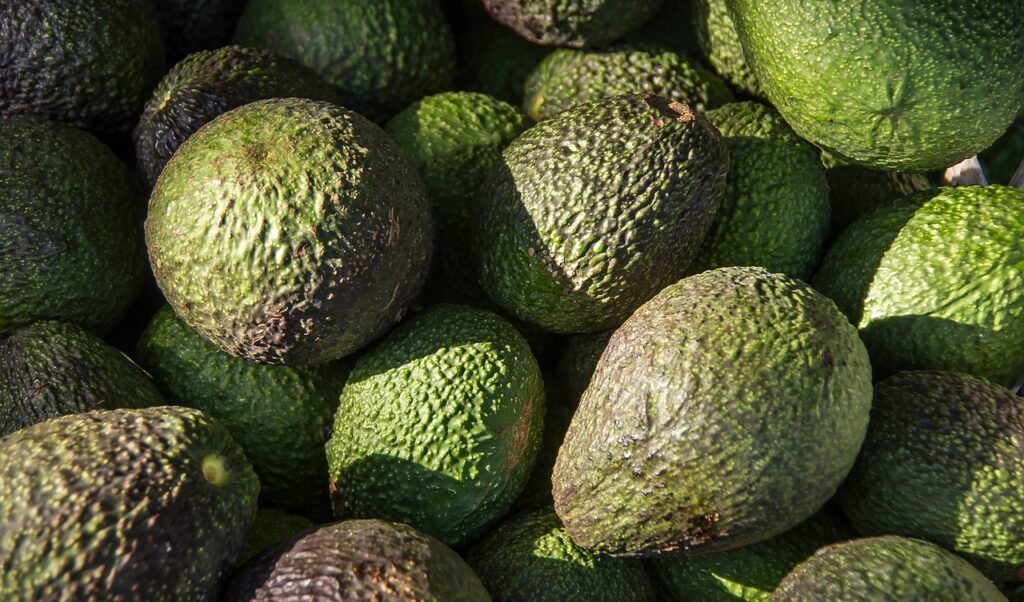
Vegetable harvesting and farm work
Beyond fruit, there’s a whole world of vegetable harvesting and general farm work. These backpacker jobs can be more physically demanding but are often available year-round. New Zealand’s agricultural industry relies heavily on backpackers, especially during harvest seasons. These jobs are physical but rewarding, and often come with accommodation or transport options.
Key destinations and harvest seasons: North Island
- Dargaville (Northland): Known as the kumara capital of New Zealand, Dargaville offers seasonal work picking and packing sweet potatoes. The season typically runs from February to May. Local farms often hire backpackers for picking and packing. If you have your own transport, you’ll find plenty to explore on the nearby Kauri Coast.
- Pukekohe (Auckland): Just south of Auckland, Pukekohe is known for its steady supply of carrots, lettuce, onions, and potatoes. You’ll find year-round work here, especially during the autumn and winter harvests (March to July).
- Gisborne: Crops here include sweetcorn, squash, and beans. Gisborne has a diverse vegetable harvest season that runs year-round. Though most jobs are available during the summer and early autumn months (December to March).
- Hawke’s Bay: This sunny east coast region is a major producer of vegetables like squash, sweetcorn, and onions. Seasonal roles include planting, weeding, harvesting, and packing. Peak times are from November to March, with some prep work starting as early as October.
- Horowhenua (Manawatū-Whanganui): A major vege-growing area producing brassicas (broccoli, cauliflower, cabbage) and leafy greens. Work includes field harvesting and packhouse sorting, with the busiest period from October to April.
Key destinations and harvest seasons: South Island
- Marlborough: While it’s famous for wine, Marlborough also has vege work, especially in onions, peas, and leafy greens. You’ll find seasonal roles during spring and summer, with additional work in irrigation and crop maintenance.
- Canterbury: A key region for veges like peas and potatoes, this agricultural hub offers work in everything from potato harvesting to general farm labour. Jobs are available throughout the year, especially in spring and autumn.
- Southland: Work can range from machinery operation to manual harvesting and packing. The peak season is late summer through early autumn (February to April).
🥔 Pro tip: Farm jobs often start early and involve long days—do use sun protection (you’ve been warned), and wear sturdy shoes.
Seasonal backpacker jobs by month and location 🚜
| Month | Pukenui Avocados |
Kerikeri Avocados, Citrus, Kiwifruit |
Auckland Berries |
Te Puke Kiwifruit |
Hawke’s Bay Fruit, Veg |
Marlborough Grapes, Veg |
Cromwell, Alexandra Cherries, Stone Fruit |
Dargaville Kumara |
Pukekohe Veg |
Gisborne Veg |
Horowhenua Brassicas |
Canterbury Peas, Potatoes |
Southland Veg |
|---|---|---|---|---|---|---|---|---|---|---|---|---|---|
| January | ✅ | ✅ | ✅ | ✅ | ✅ | ✅ | ✅ | ✅ | |||||
| February | ✅ | ✅ | ✅ | ✅ | ✅ | ✅ | ✅ | ✅ | ✅ | ✅ | ✅ | ||
| March | ✅ | ✅ | ✅ | ✅ | ✅ | ✅ | ✅ | ✅ | ✅ | ✅ | ✅ | ✅ | |
| April | ✅ | ✅ | ✅ | ✅ | ✅ | ✅ | ✅ | ✅ | |||||
| May | ✅ | ✅ | ✅ | ||||||||||
| June | ✅ | ✅ | ✅ | ✅ | |||||||||
| July | ✅ | ✅ | ✅ | ✅ | |||||||||
| August | ✅ | ✅ | ✅ | ||||||||||
| September | ✅ | ✅ | |||||||||||
| October | ✅ | ✅ | ✅ | ✅ | ✅ | ||||||||
| November | ✅ | ✅ | ✅ | ✅ | ✅ | ✅ | |||||||
| December | ✅ | ✅ | ✅ | ✅ | ✅ | ✅ | ✅ |
How to find seasonal fruit and vege jobs
Seasonal work is available throughout the year, and varies by location.
Facebook: Many employers advertise seasonal jobs on backpacker and community Facebook Groups. Refer to our table above for specific locations.
Hostels: Ask the staff about seasonal work in the area, they can often point you in the right direction.

Vineyard work
New Zealand’s wine regions—especially Marlborough, Hawke’s Bay, and Central Otago—offer seasonal work in vineyards. This includes grape picking, pruning, wire lifting, and canopy management.
Grape picking usually happens in February to April, while pruning and maintenance work can run from May to August. Vineyard jobs are often more relaxed than fruit picking, and you’ll get to work in beautiful surroundings.
How to find vineyard jobs
Ask hostel staff about vineyard work in the area, they’re a good source for insider job tips.
🍷 Pro tip: Vineyard work is a great way to meet locals and learn about wine—some employers even offer tastings! Did you know—Auckland’s Waiheke Island is home to many vineyards.
Tourism and hospitality (seasonal peaks)
Tourism jobs also follow seasonal patterns. Summer (December to February) is peak season for beach towns like Paihia and Mount Maunganui, adventure hubs like Queenstown and Rotorua, and holiday parks throughout New Zealand. Winter (June to September) is all about ski resorts and alpine lodges.
In summer, look for jobs in:
- Bay of Islands, Coromandel, Mount Maunganui, Abel Tasman: Campsites, hostels, restaurants and bars, and tour operators all need extra staff to cope with the holiday rush. Nothing beats just going in and chatting to them directly.
- Queenstown, Wānaka: Adventure companies, restaurants and bars, and hostels hire more staff to handle the influx of travellers.
In winter, head to:
- Ruapehu, Ohakune: Turoa and Whakapapa ski fields also offer seasonal jobs, though they’re smaller than the South Island resorts. You’ll find plenty of other backpackers around from all over the world.
- Queenstown, Wānaka: Ski fields like The Remarkables, Coronet Peak, and Treble Cone hire lift operators, instructors, rental techs, and café staff. We highly recommend working a ski season – it’s as fun as it sounds!
How to find seasonal tourism and hospitality jobs
Ski season:
⛷️ Pro tip: Apply early for ski season jobs—positions fill up fast, and staff accommodation is limited.

Hospitality: Work where you play
Hospitality is one of the most accessible industries for backpackers in New Zealand, and a work and travel staple.
You’ll find plenty of backpacker jobs available in cafés, bars, restaurants, hostels, hotels, and campgrounds—especially in tourist hotspots like Queenstown, Paihia, and Auckland. But if you’d rather be somewhere more off the grid there are opportunities to work virtually anywhere in the country—from tucked away resorts to golf courses.
Once again, it really comes down to where you want to base yourself. What sort of lifestyle do you want to live while working in New Zealand? Whether you’re serving meals at a ski town or brunch in a beach café, the choice comes down to the vibe you’re looking for.
Most hospitality roles don’t require formal qualifications—just a good attitude, basic English, and a willingness to learn. Plus, you need to be flexible to work nights and weekends (depending on the role). Experience helps, especially for barista or bartender roles, but many employers are happy to train you on the job.
Common hospitality jobs include:
- Barista or café assistant – Great for early risers and coffee lovers
- Bartender or waiter – Ideal for night owls and social butterflies
- Kitchen hand or dishwasher – Behind-the-scenes work with flexible hours
- Housekeeping or front desk – Often available in hostels, hotels, and campgrounds
Drop off your CV in person—managers love meeting applicants face-to-face. You could end up getting hired on the spot—enthusiasm counts big time!
How to find jobs in hospitality
In-person: Many employers advertise vacancies on-site, chatting to them on the spot is one of the best methods.
🍽️ Pro tip: Hospitality jobs often come with perks—including tips, free meals, staff discounts, and epic staff parties.
Street fundraising and charity work
Believe it or not, charities like Greenpeace, Oxfam, and World Vision often hire backpackers for street fundraising. In fact, half of the street collectors doing these jobs are backpackers! You’ll usually work in teams, travel to different areas of a given location, and earn a base wage plus bonuses. Sometimes the pay is actually quite attractive—so you can earn good money doing this work.
It helps if you care about the charity you’re raising money for (which isn’t hard). It’s high-energy work and not for everyone, but it’s a great way to meet local people and support a good cause, while earning money for your trip. Jobs are normally advertised online, and tend to be located in major cities and towns.
How to find street fundraising jobs
💬 Pro tip: Confidence and people skills are key—no experience needed, just your enthusiasm.
Au pair jobs in New Zealand

If you love working with kids and want a cultural exchange experience, becoming an au pair in New Zealand is a fantastic option. It’s one of the most popular backpacker jobs because it combines free accommodation, meals, and a weekly allowance with the chance to live like a local. Plus, you’ll normally be provided with a car—meaning freedom to travel during your time off.
What is an au pair?
An au pair is a live-in childcare helper who becomes part of a Kiwi family. Your main role is to look after the children—think school runs, playtime, light meal prep, and sometimes light housework. In return, you get:
- Free accommodation and meals (including a private room)
- A weekly allowance (usually NZD $200–$425 depending on hours worked)
- A vehicle to use (most of the time)
- Inclusion in family life
Requirements
To work as an au pair in New Zealand, you’ll need to meet the following criteria:
- Age: 18–30 (some agencies accept up to 35)
- Visa: A valid Working Holiday Visa
- Funds: At least NZD $4,200 in your account
- English skills: Good conversational level
Other languages can be advantageous if the family is bilingual (e.g. German) - Status: Unmarried, no children
- Health and character: Meet visa requirements (may require medical checks)
✅ Pro tip: Apply early—some countries have WHV quotas that fill fast.
Pay and conditions
- Hours: Typically 20–45 hours per week
- Pay: NZD $200–$425 per week (after board and lodging deductions)
- Time off: At least two days off per week; many families offer 20 days’ holiday for a 12-month stay
- Contract: Always sign an agreement outlining duties, pay, and time off
Why choose au pair work?
- Cultural immersion: Live like a local, improve your English, and experience Kiwi family life
- Budget-friendly: Save on rent and food while earning money for your trip
- Travel perks: Many au pairs use weekends and holidays to explore New Zealand
Things to watch out for
- Legal obligations: Au pairs are considered employees in NZ, so families must pay at least minimum wage (with board deductions) and handle tax (PAYE)
- IRD number: You’ll need one for tax purposes—apply as soon as you arrive, or from your home country
- Insurance: Comprehensive health insurance is mandatory under WHV rules
How to find au pair jobs
Start searching 3–6 months before arrival for the best match.
🌟 Pro tip: Use au pair agencies if you want extra security—they provide contracts, training, and support. Going direct can save fees but requires more due diligence.
Backpacker work exchange: Trade time for a bed

There are many other ways to score a free bed in New Zealand. Work exchange is a brilliant option if you want to save money and stay longer in one place. Instead of getting paid in cash, you work a few hours a day in exchange for free accommodation, meals, or other perks.
This setup is common in hostels, campgrounds, farms, eco-lodges, and even private homes. Especially in peak season. Pretty much any hostel you visit will have opportunities to work for accommodation.
Tasks vary depending on the place, but often include:
- Cleaning and housekeeping
- Reception and guest check-ins
- Gardening and maintenance
- Cooking or helping with tours and activities
Most work exchange gigs ask for 10–20 hours per week, leaving you plenty of time to explore. Some hostels also offer free activities, bike hire, or meals as part of the deal. It’s a great way to become part of the local scene.
We worked for a bed in multiple locations throughout New Zealand, and made lifelong friends. Pick a destination you love and ask around at hostels—it’s that easy.
How to find work for accommodation
Hostels and campgrounds: 100% in-person is best—you could secure something on the day (ask at reception or check hostel notice boards—many don’t advertise online).
Private lodging:
🧹 Pro tip: Always clarify expectations before you start—some places are super chill, others run like clockwork.
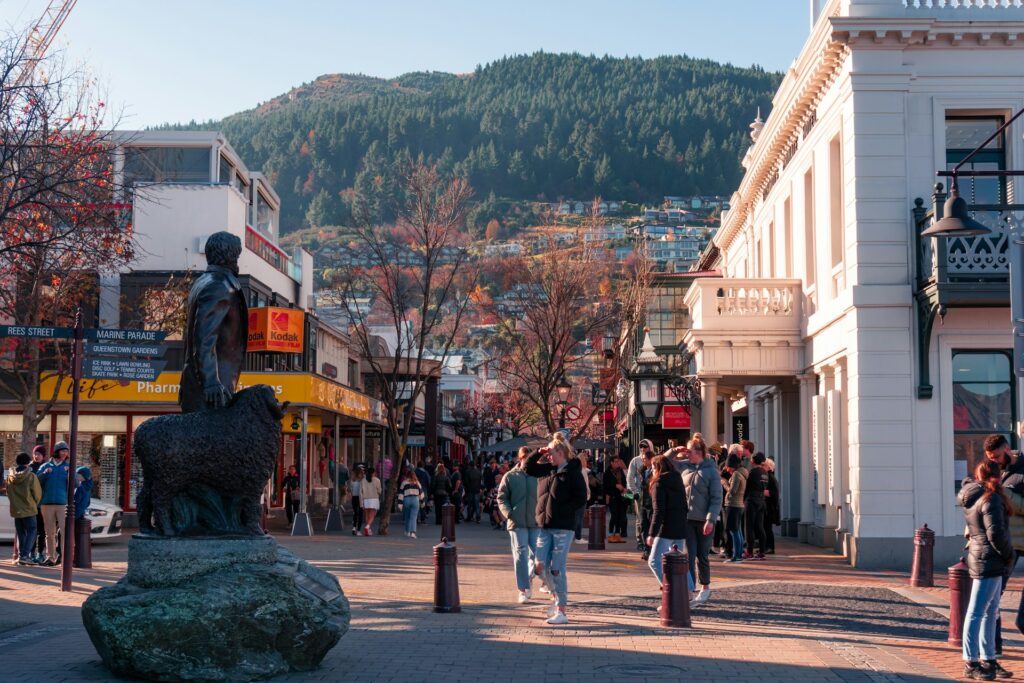
Backpacker jobs in Queenstown
Ah, Queenstown. Some consider it the crown jewel of New Zealand. And, well, we’ll leave that up to you to decide. It’s pretty much the backpacker job capital of New Zealand. We know how many of you will find yourselves here so we’ve dedicated this section to Queenstown jobs.
With thousands of travellers passing through each year, the town is packed with diverse, seasonal, and year-round opportunities—finding a job is easy. Finding the right fit for you is what we’re here to help with. Whatever job you land in Queenstown, you’re guaranteed to have a blast.
Hospitality
Queenstown’s hospitality scene is thriving year-round, and there’s always a demand for workers in cafes, restaurants, and bars. One of the best ways to find hospitality jobs is simply by walking around the town and dropping off your CV at local businesses. Often times you’ll notice vacancies posted on-site. Many places also post job openings on local bulletin boards or online on sites like Seek and BackpackerBoard.
If you have previous experience in customer service, it’s a bonus, but many employers are willing to train. Peak summer (December-February) and winter (June-August) seasons are the busiest, so it’s worth arriving ahead of time to secure a spot. Be prepared for long hours but potentially great tips.
Tourism
Queenstown offers a range of jobs in adventure tourism, guiding, and activity coordination. You can find these roles by directly approaching companies offering activities like bungee jumping, jet boating, or hiking tours. Many have booking offices in the town centre.
Some companies may require specific qualifications (like a driver’s license or first aid certification), but many entry-level positions, such as activity assistants, only require a positive attitude and the ability to work with people. Networking in town can also help you find hidden opportunities.
Retail and events
For event-based work, keep an eye on major events like the Queenstown Winter Festival or Summer Concert Series—event organisers often need extra hands for setup, customer service, or even behind-the-scenes work. If you’re looking for shorter-term gigs, these roles often provide flexible hours, which can be ideal for work and travel.
Retail and event jobs are common in Queenstown due to the influx of tourists year-round. You can find retail jobs by checking local job boards, approaching shops directly, or applying through recruitment agencies. Shops, festivals, and pop-up events often need casual staff. Websites like Seek and Queenstown’s Chamber of Commerce also list retail openings.
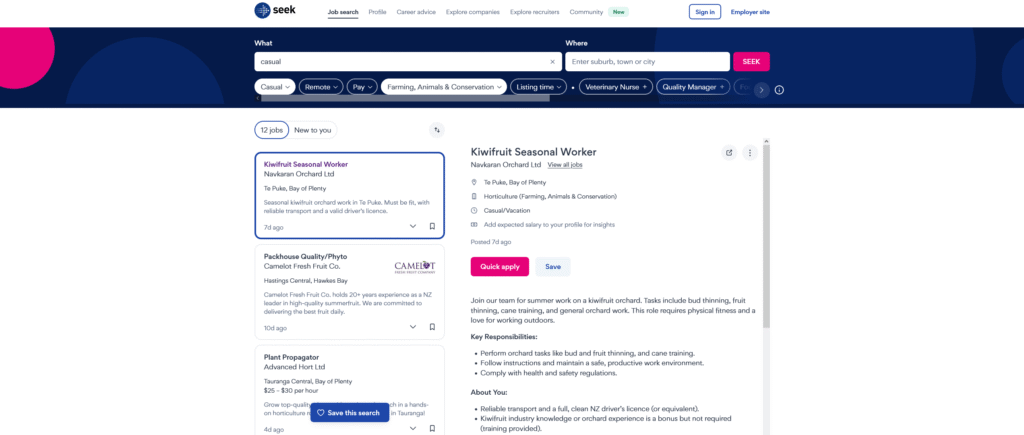
Fruit, vege, and farm work
Farm work is a great way to earn money while experiencing the Kiwi countryside. In the Queenstown region, you’ll find seasonal work in fruit picking, vineyard maintenance, and other agricultural tasks. Websites like Pick NZ, Seasonal Jobs and BackpackerBoard are an easy way to find available jobs in the area fast. Local Facebook groups are also worth a search.
Farmers and orchards often offer accommodation, which can help cut down on your living expenses. Keep in mind, these jobs can be physically demanding, but they often come with the option to work long hours and can provide you with a steady paycheck. Especially during the harvest season and off-peak months. Some farms may require workers to stay for a minimum period, so be sure to clarify details.
Ski season jobs
The ski season is a major draw for backpackers looking for seasonal work here. Jobs are typically available from June to October (for the duration of the season). The best way to secure one is to check the vacancies at ski resorts like Coronet Peak and The Remarkables, or contact them directly. These jobs are competitive—often posted months in advance. So get in quick.
The roles include lift operators, ski instructors, rental techs, and hospitality positions within the resorts. Some may require specific training, such as avalanche safety or snowboarding skills, but there are plenty of entry-level roles that require no experience. Many ski resorts also offer accommodation, making this a pretty sweet opportunity to live, work and play in stunning surroundings.
How to find jobs in Queenstown
Fruit, vege, and farm work:
Ski season:
🎿 Pro tip: Arrive early for ski season—jobs fill fast, and accommodation gets tight.
Claiming your tax refund before you leave
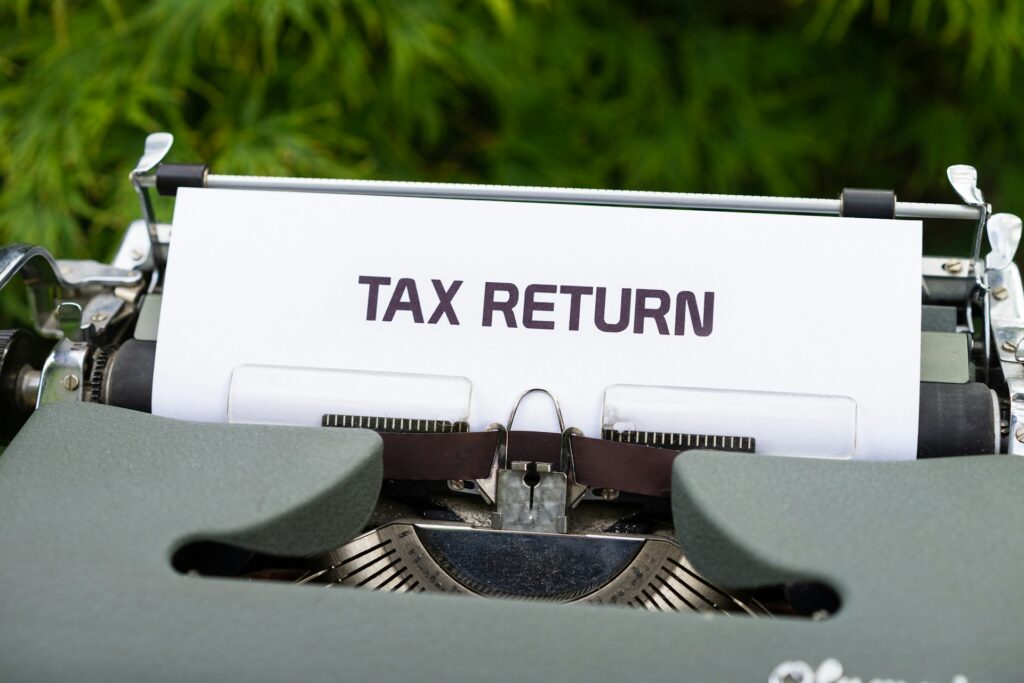
Alright, it’s the moment we’ve all been waiting for—you’re preparing to leave this insanely beautiful country, but before you do it’s worth checking to see if the tax department owes you money. Seriously though, they could end up funding your flight to Thailand.
If you’ve worked in New Zealand during your travels, chances are you’ve paid income tax. The good news? You might be eligible for a tax refund when you leave the country (um, yes please). It’s a nice little bonus to help fund your next adventure—or at least cover your airport snacks.
Here’s how it works:
Every employee in New Zealand pays tax based on their income bracket. If you’ve only worked part of the year or earned below a certain threshold, you may well have overpaid and can claim some money back. The tax year runs from 1 April to 31 March, so you can apply for a refund after the end of the tax year or once you’ve finished working and you’re ready to leave.
How to claim your refund:
- Apply online via the IRD website log in or create a myIR account
- Submit a personal tax summary or request a refund through the online portal
You’ll follow a few simple steps—generally the system will automatically calculate everything for you and work out if you’re owed money (cha-ching!) - Provide your IRD number, employer details, and bank account info (usually this information is already available, in some cases you may need to add additional information)
- The system will confirm if you’re owed money (this could be any amount from a few cents to NZD $1,000+)
- Wait for processing—refunds are usually issued within a few weeks
These days it’s easiest to just do it yourself as everything is generally automated within the IRD system. The whole process could take you less than half an hour.
💰 Pro tip: Keep your payslips and employment records handy—these make the refund process smoother and faster if you need to add any additional information.
Additional resources: Safety, support, and employment help

When it comes to helpful services and hotlines, New Zealand pretty much has everything covered. While most backpacker jobs are fair and straightforward, it’s important to know your rights and where to turn if something goes wrong.
Whether you’re dealing with unpaid wages, unsafe working conditions, or exploitation, there are free and confidential resources available to help you.
Know your rights as a worker
All workers in New Zealand—regardless of visa status—are entitled to minimum employment rights. These include:
- A written employment agreement
- At least the minimum wage
- Paid rest and meal breaks
- Holiday pay and sick leave
- A safe working environment free from discrimination
You can learn more about your rights at Employment New Zealand.
📄 Pro tip: Always ask for a written contract and keep copies of your payslips. It pays (literally) to keep an eye on your payslips in case you’ve been underpaid—we’ve seen this happen plenty of times.
What to do if you’re not paid correctly
If your employer hasn’t paid you what you’re owed—or has paid less than the minimum wage—you can take action. Wage theft is now a criminal offence in New Zealand.
Steps to take:
- Talk to your employer first and try to resolve the issue directly—most times it’ll be an honest mistake.
- If that doesn’t work, contact a Labour Inspector or lodge a complaint with the Employment Relations Authority (ERA).
- You can also get help from Community Law Centres or the Citizens Advice Bureau.
More info:
- Community Law – Unpaid Wages Guide
- Labour Inspectorate Complaints
- Immigration NZ’s Worker Rights Page
⚖️ Pro tip: You have up to six years to claim unpaid wages—don’t wait if something feels off.
Free legal advice and support services
If you’re being mistreated, threatened, or forced to work in unsafe conditions, there are plenty of free resources available to you. If you need help understanding your rights or resolving a workplace issue, these organisations offer free support:
- Community Law Centres – Legal advice and help with employment disputes
- Citizens Advice Bureau (CAB) – General support and referrals
- MBIE Early Resolution Service – Free phone-based mediation for employment issues
- Employment Relations Authority (ERA) – Formal complaints and legal action
- WorkSafe NZ – For health and safety concerns in the workplace
📞 Pro tip: Call 0800 20 90 20 for free advice from Employment New Zealand.
Work and travel is all about the experience
Landing a job as a backpacker in Aotearoa isn’t just about making money—it’s about experiencing the country in a deeper, more meaningful way. Every job adds a new layer to your travel story. You could be getting down and dirty in a kumara field near Dargaville or managing the front desk of LyLo’s trendy Auckland hostel. Whatever the case may be there’s plenty of backpacker jobs to choose from.
The key is to stay flexible, be open to new experiences, and don’t be afraid to ask around. Some of the best gigs aren’t listed online—they’re found through word of mouth, hostel notice boards, or spontaneous conversations with locals. This old school method still works best and could land you a job on the spot.
So pack your CV, bring lots of positive energy, and get ready to work your way across one of the most beautiful countries on earth. Work and travel in New Zealand is one epic journey. With the right job, you’ll earn cash, make lifelong friends, and create unforgettable memories. We’re getting the itch just thinking about how much fun you’ll have! ✌🏼
Final tips for working in New Zealand
- Network, network, network!—talk to other travellers, hostel staff, and locals
- Consider the destination—find the right vibe for you, then find the right job fit
- Apply ahead of time—seasonal jobs are sometimes listed months in advance and can be competitive
- Look for perks—many backpacker jobs include accommodation and other money savers
- Budget wisely—even with a job, NZ isn’t cheap, so plan ahead
- Be flexible—you may need to work nights and weekends, depending on your role
- Stay legal—don’t work without a visa or IRD number
👉🏼 Check out our FAQ for more information about backpacking New Zealand.

